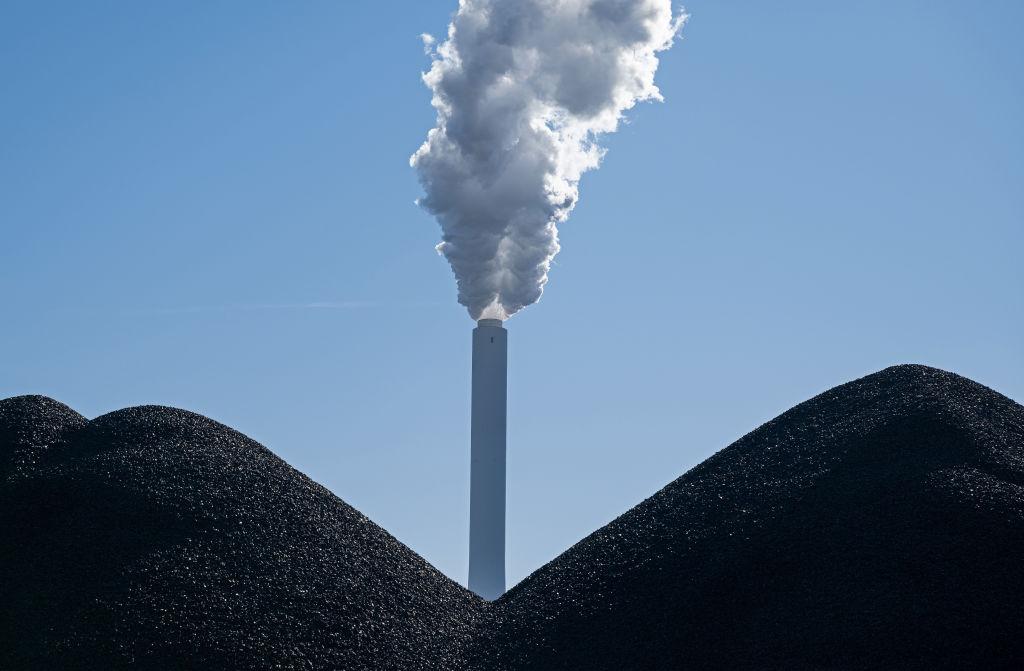
Planet A
Last week, the UN’s Intergovernmental Panel on Climate Change released the latest instalment of its 6th assessment report series, predicting that the earth is on a global warming trajectory of more than double the 1.5°C threshold set out in the Paris Agreement. Australia, the world’s third-largest fossil fuel exporter, was targeted by UN Secretary-General Antonio Guterres for frustrating international climate action through its ‘stupid investment’ to prolong economic reliance on the coal industry. Although Australia has committed to a 2050 net-zero emissions policy, it has not yet committed to phasing out coal power, instead opting for an approach focused on low-emissions technology.
In the wake of extreme climate-change-driven events like the 2019–20 bushfires and the recent floods in New South Wales and Queensland, Australians are increasingly impacted and concerned by the effects of climate change, yet national climate action funding is set to decrease by 35%. Climate change poses significant environmental and economic challenges to Australia and could be a major consideration for voters in next month’s federal election.
Democracy watch
The Council of Europe recently issued guidelines on electoral communications and media coverage of elections for EU member states. The guidance aims to increase transparency and accountability in online campaigning. It tackles the abusive use or misuse of microtargeting, personal data, bots, algorithms and disinformation campaigns that could undermine the fairness and legitimacy of campaigns.
Countries around the world are confronting threats to democratic processes as disinformation and propaganda increase. Analysis by the European Parliamentary Research Service on social media risks concluded that they have the potential to undermine democracy by distorting information and facilitating political manipulation.
There are already reports of online misinformation and false claims in the first round of the French election. Australia’s upcoming election is facing similar challenges. Social media giants have been asked to moderate content; TikTok, for example, is working with the Australian Electoral Commission to release an in-app election guide.
Information operations
Kenya’s elections scheduled for August are potentially under threat from disinformation on major platforms like Facebook. While large social media companies normally devote substantial resources to combating disinformation during Western election cycles, Facebook has devoted only limited resources to aiding Kenya’s content moderators.
Concerns over election disinformation have been spurred by President Uhuru Kenyatta’s past use of the services of Cambridge Analytica to create selectively targeted electoral profiling to stoke ethnic tensions during the 2013 and 2017 Kenyan elections. In the 2017 election he also engaged Harris Media—a US company used by Donald Trump during his 2016 election campaign—to spread inflammatory attack ads on Google.
Foreign interference from Russia also looms as a potential issue after Kenya’s UN ambassador, Martin Kimani, voiced concerns over Russia’s invasion of Ukraine. Foreign and domestic disinformation in this election could end up destabilising Kenya’s democratic systems.
Follow the money
As Russia’s invasion of Ukraine enters its 50th day, the European Union has upped the ante on President Vladimir Putin by adopting a fifth package of unprecedented economic sanctions. The EU’s new import and export restrictions will inflict further pain on a Russian economy that has already lost more value than any target of sanctions in modern history.
Particularly significant are prohibitions against imported Russian coal, a staple ingredient of the European energy diet worth €8 billion ($12 billion) annually. European Commission President Ursula von der Leyen projected that Europe’s latest sanctions will ensure Russia’s ‘descent into economic, financial and technological isolation’.
However, not all analysts echo von der Leyen’s optimism. Many point out that Hungary, an EU member, remains Putin’s political ally, while Turkey, a NATO member, is allegedly laundering sanctioned Russian assets. Russia’s economic relationships with Iran and autocratic African nations may also undermine the sanctions’ efficacy. Despite the EU’s best efforts, Putin’s long list of sanction-evading contingencies will likely extend the duration of his brutal war.
Terror byte
The Israeli Defense Forces are switching ‘from defence to offence’ in their fight against ‘sources of … terrorism’, Prime Minister Naftali Bennett said last Thursday, in response to a string of terror attacks since 22 March that have killed 14 Israelis.
Four attacks occurred before and during the Muslim holy month of Ramadan. Islamic State claimed responsibility for the first two, which were allegedly carried out by Arab citizens of Israel. The terror group also praised the next two attacks, which were allegedly committed by Palestinians.
Israeli security forces have since been given ‘full freedom’ to counter the escalating violence and have launched raids in the West Bank in Jenin and Ya’bad, the homes of the alleged perpetrators. Fourteen Palestinians were reportedly killed during the same period, including the alleged assailants.
The attacks deepened the political crisis faced by Bennett, who lost his coalition Knesset majority on 6 April, and have heightened fears of further terrorist acts in Israel.